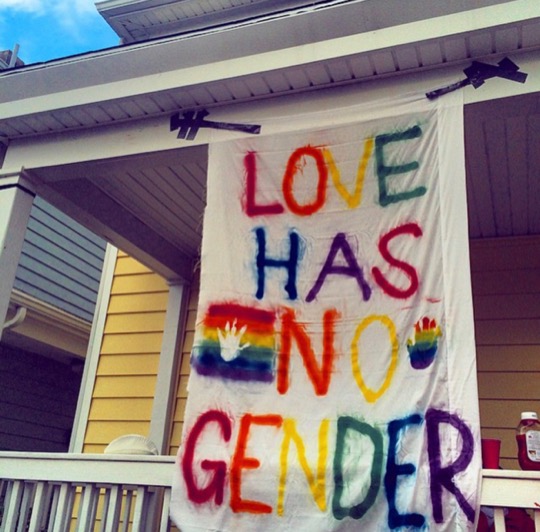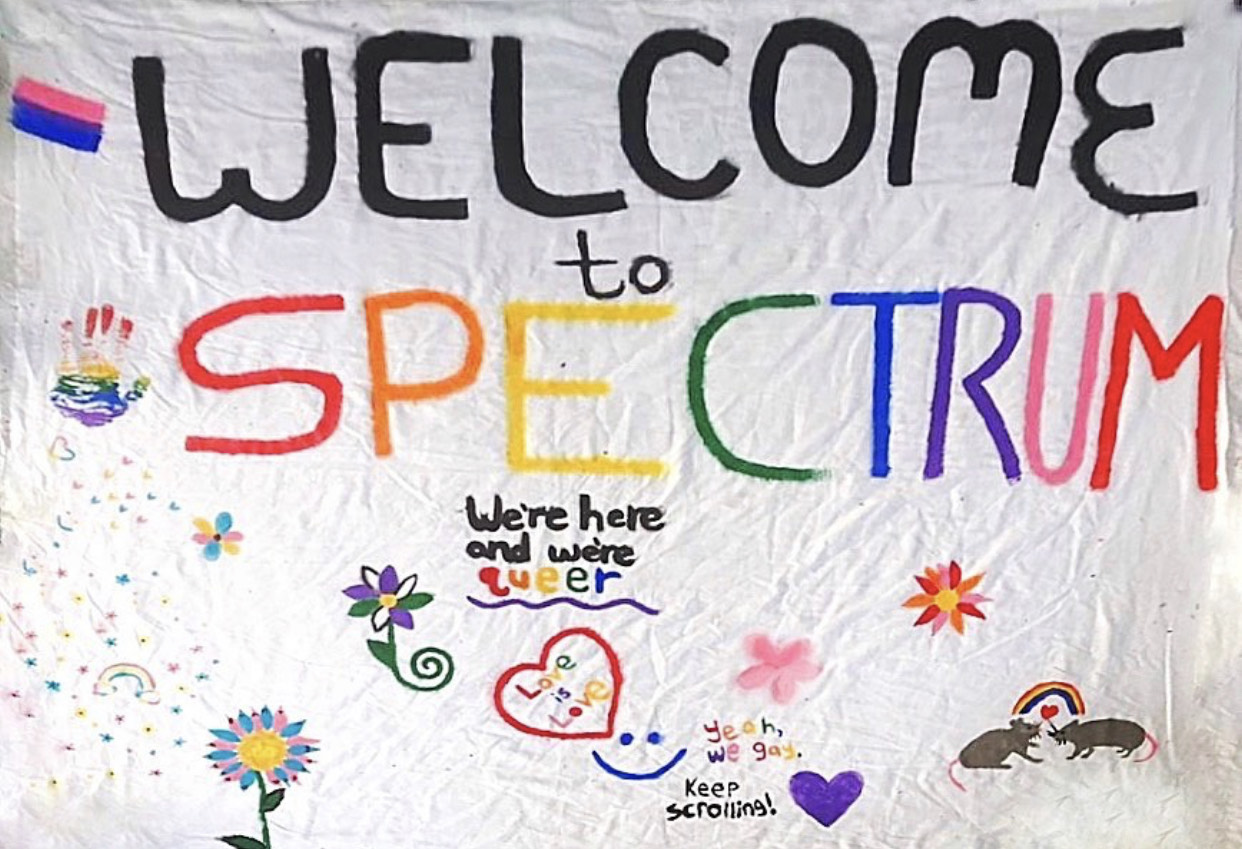Let's Talk Human Rights

Podcast: Sexual Identity, Inclusion, and Community on Campus
By Jessie Starkweather’22 and Chris Reynolds’21
A month filled with barbeques and baseball games, June is also an important month for the LGBTQ+ community. Queer people and their allies celebrate Pride Month with festivals, parades, and artistic reflections on the progress made toward political inclusion since the Stonewall Riots in 1969. We’ve come a long way since then. In 2015, the US Supreme Court legalized marriage equality with the Obergefell v. Hodges decision -- a case that originated in Cincinnati!
At the University of Dayton, community is a key institutional value. Although we do not collect demographic information on the undergraduate population’s sexual identities, the American College Health Association estimates that 10% of college students identify as gay, lesbian, bisexual, trans, asexual, pansexual, or questioning. Moreover, the numbers may be higher because the development of sexual identity is in flux over the course of a young person’s life. Yet regardless of whether students are out and proud, closeted, or questioning, they are still likely to be affected by microaggressions and bias incidents that occur on campus.
In Spring 2020, we enrolled in Dr. Jamie L. Small’s sociology class on Sex, Crime, and Law. Our discussions ranged from domestic violence to mass incarceration to pregnancy discrimination in the workplace. For our final project, we were tasked to develop a podcast that investigated broader course themes. We brainstormed ideas at the beginning of the semester, and then Dr. Small placed in groups based on shared interests. The unexpected campus closure in March created new barriers to making a podcast -- a project that neither of us had done before! After consulting with Dr. Small, though, we decided to continue with the podcast because documenting the micro- and macro-aggressions that LGBTQ+ students experience on campus is really important work.
We learned a lot and would like to share the podcast and some of those findings with you.
Spectrum is UD’s LGBTQ+ student organization. The group is comprised of dedicated students who strive to help make other LGBTQ+ students on campus know they are safe to be themselves, while being transparent about the challenges. Spectrum provides aid, support, and a safe space for LGBTQ+ students and their allies. For instance, through one initiative “Know Your Rights,” Spectrum’s members learn about what microaggressions are on campus; how to report them; and the resources available to them.

One moment of hostility for which Spectrum provided critical support occurred last fall. Early in September, vandalizers ripped down rainbow flags -- symbols of solidarity and the queer community -- from the Spectrum South Ally House. The flags were later found in a nearby garbage can. Similar incidents happened two more times during the semester, and a memorial for Transgender Day of Remembrance was also vandalized.
President Eric Spina wrote an email to the campus community denouncing this bias-related vandalism. He wrote:
“We condemn this act as incompatible with our Catholic, Marianist values and our commitment to create an environment where all feel safe, supported, valued and respected. We are all called to safeguard the dignity of every person in thought, word and action, and to work together to strengthen our sense of community. This is an offense not only against certain members of our community but, indeed, an offense against the entire University community.”
While these kinds of bias-related incidents are noticeable on campus, microaggressions can be harder to see.
In the podcast, you will hear interviews that we conducted with Chloé Massie-Costales and Laura Hutchinson. They discuss their respective experiences with the LGBTQ+ community at UD. Chloé Massie-Costales is graduated this May with a degree with sociology, and during her time at UD, she was deeply involved with Spectrum. She helped us understand what bias-related incidents look like for students and how the campus climate regarding these incidents has changed over her five years on campus. Laura Hutchinson, also a UD alum, is coordinator of LGBTQ+ Support Services at the Brook Center. She explained the nuances of micro- and macro-aggressions and how bias-related incidents negatively impact LGBTQ+ students in higher education.
After talking with Chloé and Laura, we then discuss how Title IX, legal protection against discrimination on the basis of sex, does not explicitly extend to the LGBTQ+ community. We pivot to examine some of the policies that UD has in place to ensure its students are protected, whether it is in the Non Discrimination Statement or in policies such as the Chosen Name Policy.
We hope that our podcast can help listeners understand and learn about the bias-related incidents that can happen on any college campus. We hope that our listeners will become more aware of the different ways these violent incidents occur and how they can affect their peers, friends, and even family members. We hope to inform students of resources on our campus and what UD does to support them. We hope our listeners understand that using expressions such as, “That’s so gay” is harmful because it’s basically saying, “you are wrong.”
No human is wrong.
We also understand that social change is not something that happens overnight. While incredible strides have been made in the past few decades, it is clear that there is still so much to be done. But to be silent is to be complicit. By speaking out and educating others, we hope to make a change in people’s everyday lives.
🎙🎧LISTEN TO PODCAST
Authors and Podcast Creators in Sociology 329 "Sex, Crime, and Law" course:
- Jessie Starkweather'22 (She/Her/Hers) is a Criminal Justice major
- Chris Reynolds'21 (They/Them/Theirs) is a Computer Science major
Dr. Jamie Small is an assistant professor in the Department of Sociology, Anthropology, and Social Work and a Human Rights Center Faculty Research Fellow at the University of Dayton.
Moral Courage on Campus
Spectrum House
Students enrolled in three courses (HRS200, VAH428, POL431) worked on a collaborative multimedia project inspired by the the Moral Courage Project. Through an open nomination process, the UD campus community put forward names of people who exemplify "moral courage".
Moral Courage on Campus
Students enrolled in three courses (HRS200, VAH428, POL431) worked on a collaborative multimedia project inspired by the the Moral Courage Project. Through an open nomination process, the UD campus community put forward names of people who exemplify "moral courage".
Spectrum House
